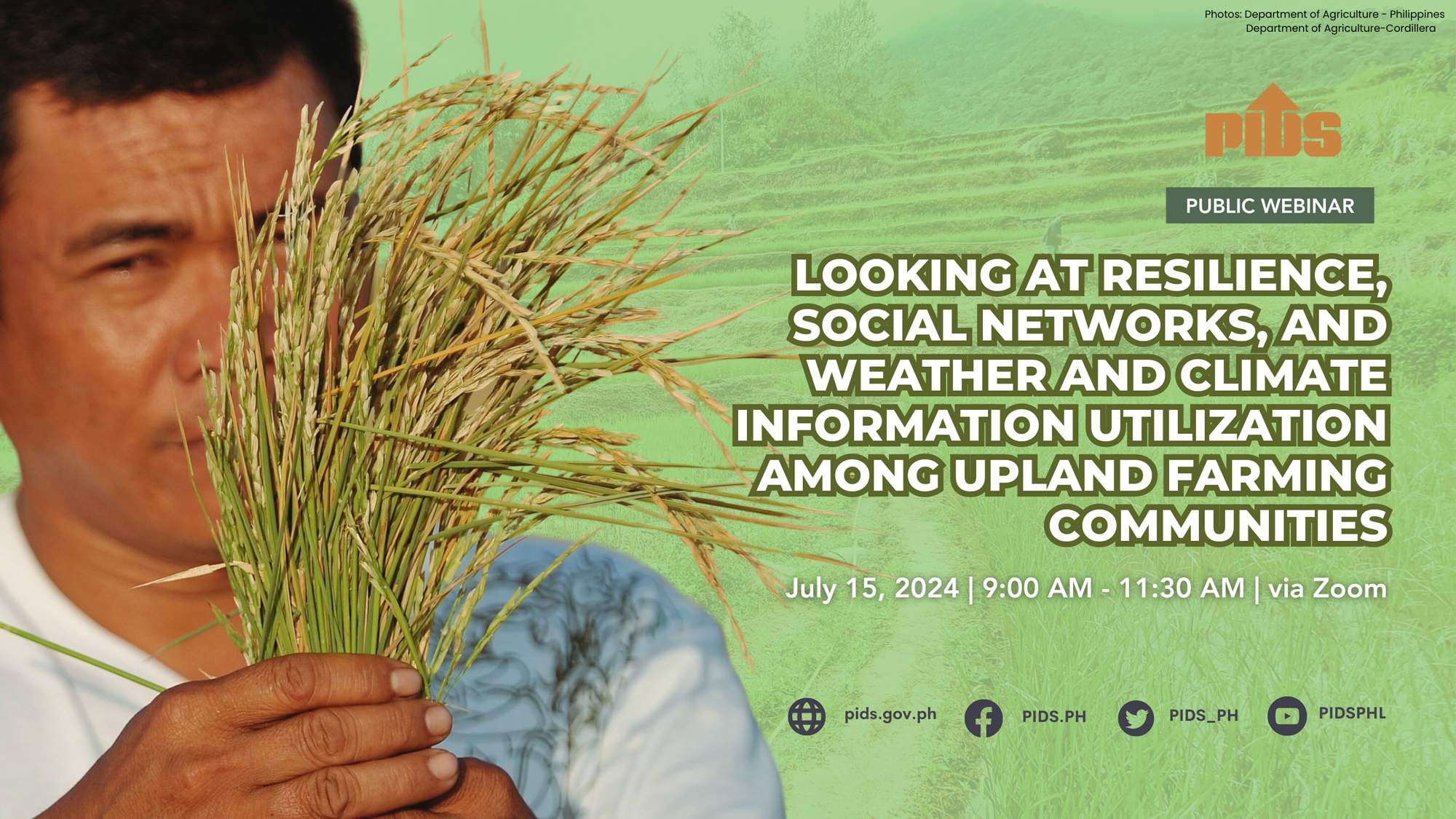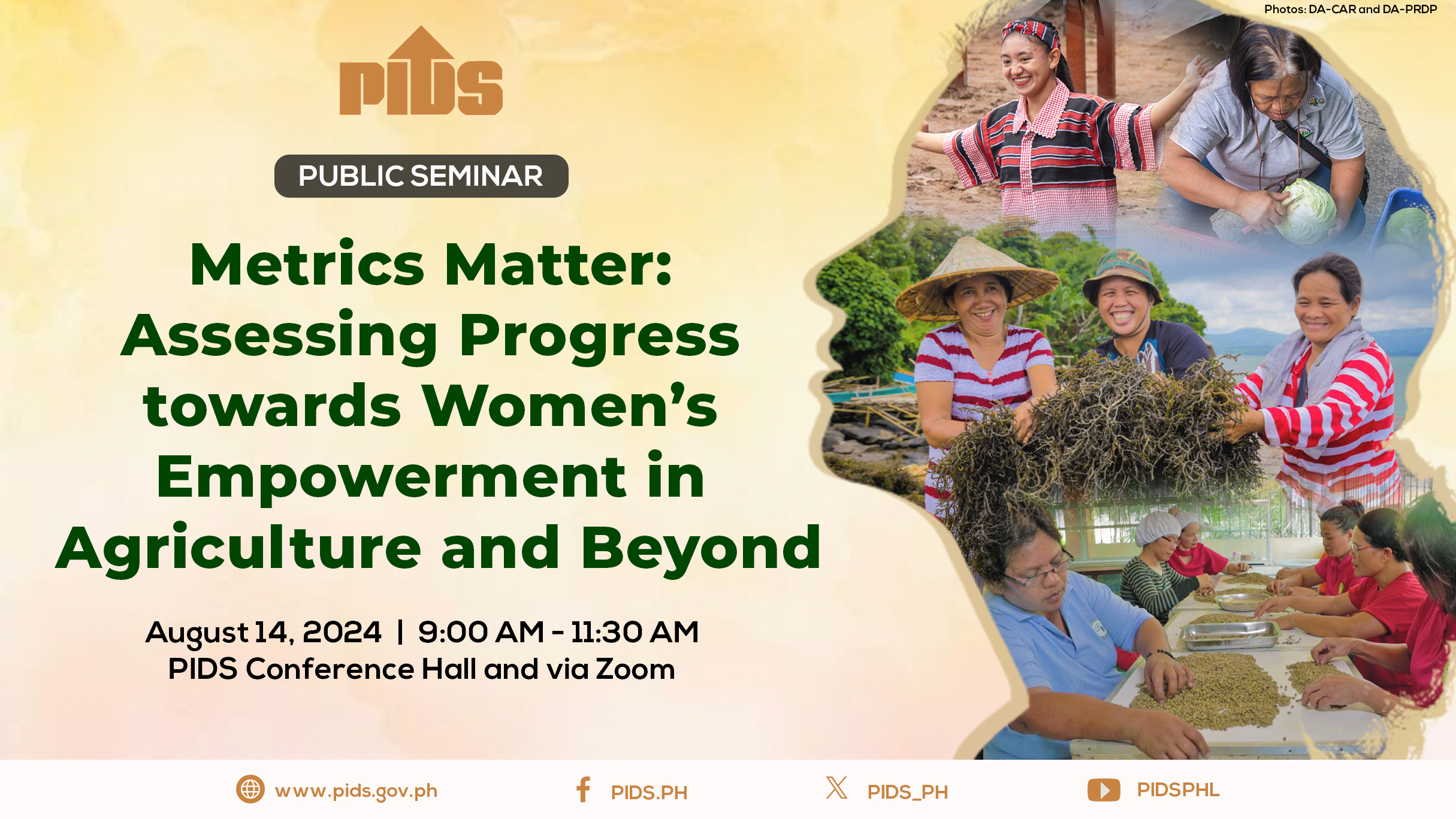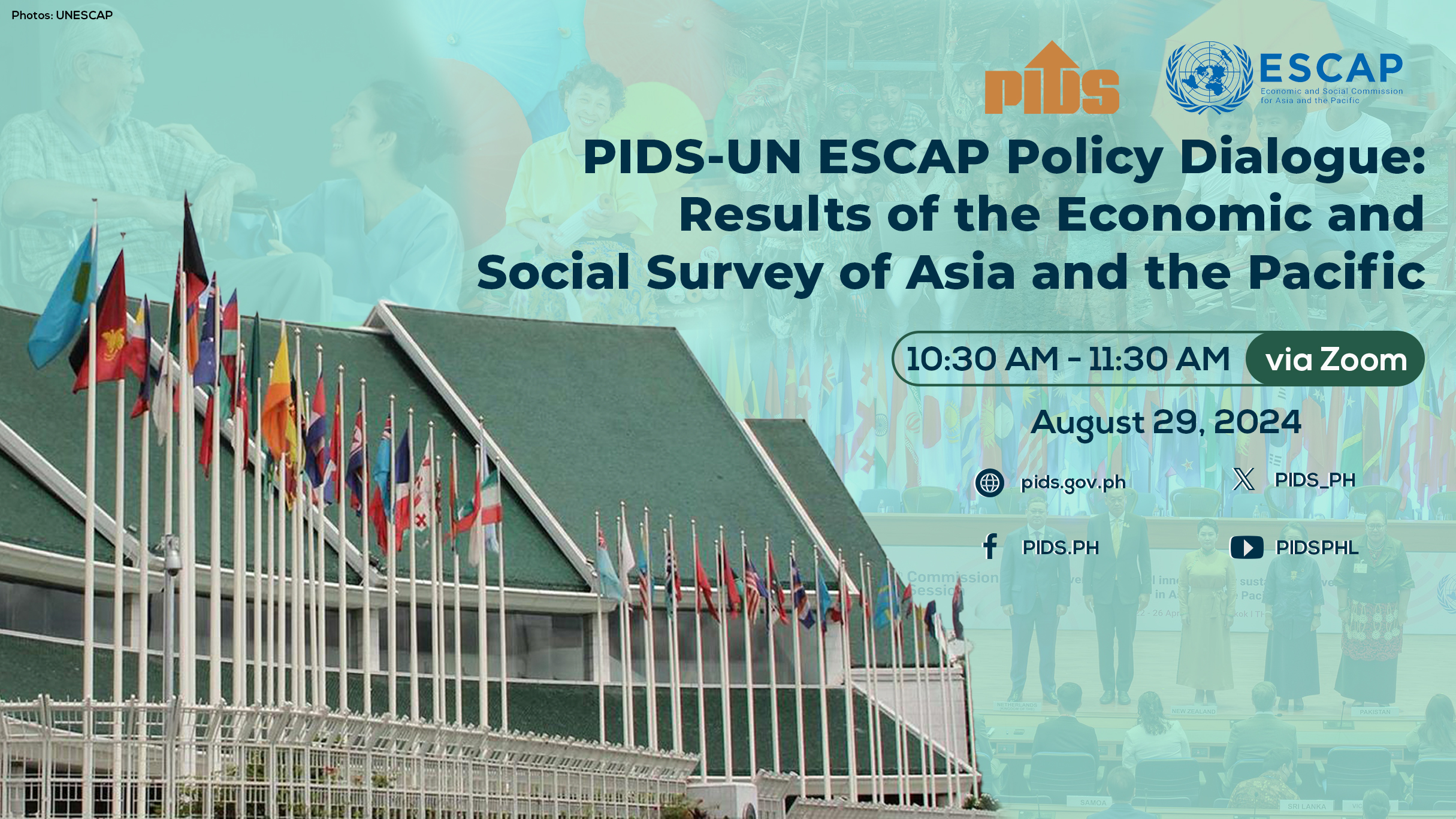MANILA – The government is urged to promote social enterprises (SEs) in rural areas to provide income-generating opportunities for women, marginalized groups and poor communities.
A recent policy note released by state think tank Philippine Institute for Development Studies (PIDS) discussed policies and programs for women in rural and agriculture sector in line with the country’s efforts to achieve gender equality focusing on the sector.
The policy note said women, who comprise half of the population, have an equal role in steering the country toward harnessing the productive capacity of labor to achieve the goals set in the Philippine Development Plan and the AmBisyon Natin 2040, the government’s 25-year long-term vision to end poverty.
“Women in the agriculture sector can benefit from SEs not only through livelihoods but also through the ability of SEs to transform the communities they work in,” said PIDS senior research fellow Connie Bayudan-Dacuycuy, author of the paper.
The paper found that women occupy merely 26 percent of the agricultural employment in the country.
Bayudan-Dacuycuy said women still tend to be involved in weeding and harvesting jobs, which are known to be less profitable than men’s traditional jobs in agriculture, such as plowing.
noted that SEs are highly evolved in social awareness and adopt business solutions to social and environmental issues.
Apart from promoting SEs, the paper also urged the government to beef up research on the effects of climate change on men and women.
“Recent developments and their effects on men and women alike need to be analyzed to provide more convincing policy narratives,” Bayudan-Dacuycuy added.
She said gender disaggregated data need to be collected to make women’s issues more visible in the policy space.
The paper further underscored the need for the country to invest in rural infrastructures that lessen the time spent on care economy in the form of housework and taking care of children, the sick, and the elderly.
It said the extent of time women devote to the care economy results in time poverty, which hampers their ability to pursue economically productive and welfare-enhancing endeavors.
Bayudan-Dacuycuy said some of the possible infrastructures that can be explored include the provision of childcare services, construction of pumps and solar power to improve access to water and electricity, as well as the construction of permeable paving and porous roads.
“In addition, flood protection measures should be in place to ensure minimal time spent cleaning up after floods and the prevention of vector-borne diseases,” she added. (PNA)
A recent policy note released by state think tank Philippine Institute for Development Studies (PIDS) discussed policies and programs for women in rural and agriculture sector in line with the country’s efforts to achieve gender equality focusing on the sector.
The policy note said women, who comprise half of the population, have an equal role in steering the country toward harnessing the productive capacity of labor to achieve the goals set in the Philippine Development Plan and the AmBisyon Natin 2040, the government’s 25-year long-term vision to end poverty.
“Women in the agriculture sector can benefit from SEs not only through livelihoods but also through the ability of SEs to transform the communities they work in,” said PIDS senior research fellow Connie Bayudan-Dacuycuy, author of the paper.
The paper found that women occupy merely 26 percent of the agricultural employment in the country.
Bayudan-Dacuycuy said women still tend to be involved in weeding and harvesting jobs, which are known to be less profitable than men’s traditional jobs in agriculture, such as plowing.
noted that SEs are highly evolved in social awareness and adopt business solutions to social and environmental issues.
Apart from promoting SEs, the paper also urged the government to beef up research on the effects of climate change on men and women.
“Recent developments and their effects on men and women alike need to be analyzed to provide more convincing policy narratives,” Bayudan-Dacuycuy added.
She said gender disaggregated data need to be collected to make women’s issues more visible in the policy space.
The paper further underscored the need for the country to invest in rural infrastructures that lessen the time spent on care economy in the form of housework and taking care of children, the sick, and the elderly.
It said the extent of time women devote to the care economy results in time poverty, which hampers their ability to pursue economically productive and welfare-enhancing endeavors.
Bayudan-Dacuycuy said some of the possible infrastructures that can be explored include the provision of childcare services, construction of pumps and solar power to improve access to water and electricity, as well as the construction of permeable paving and porous roads.
“In addition, flood protection measures should be in place to ensure minimal time spent cleaning up after floods and the prevention of vector-borne diseases,” she added. (PNA)












